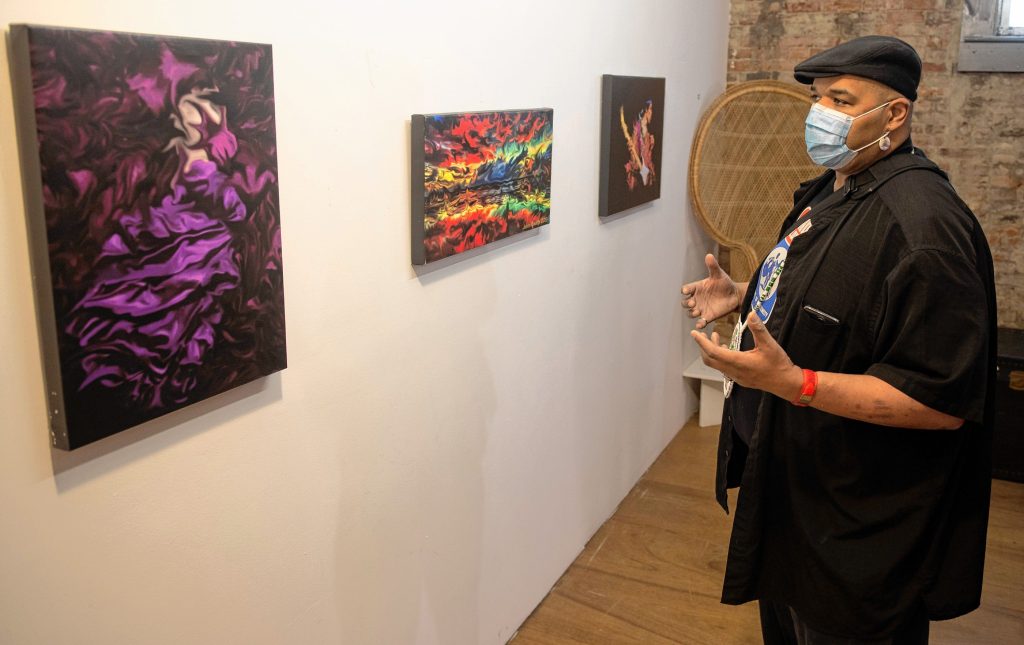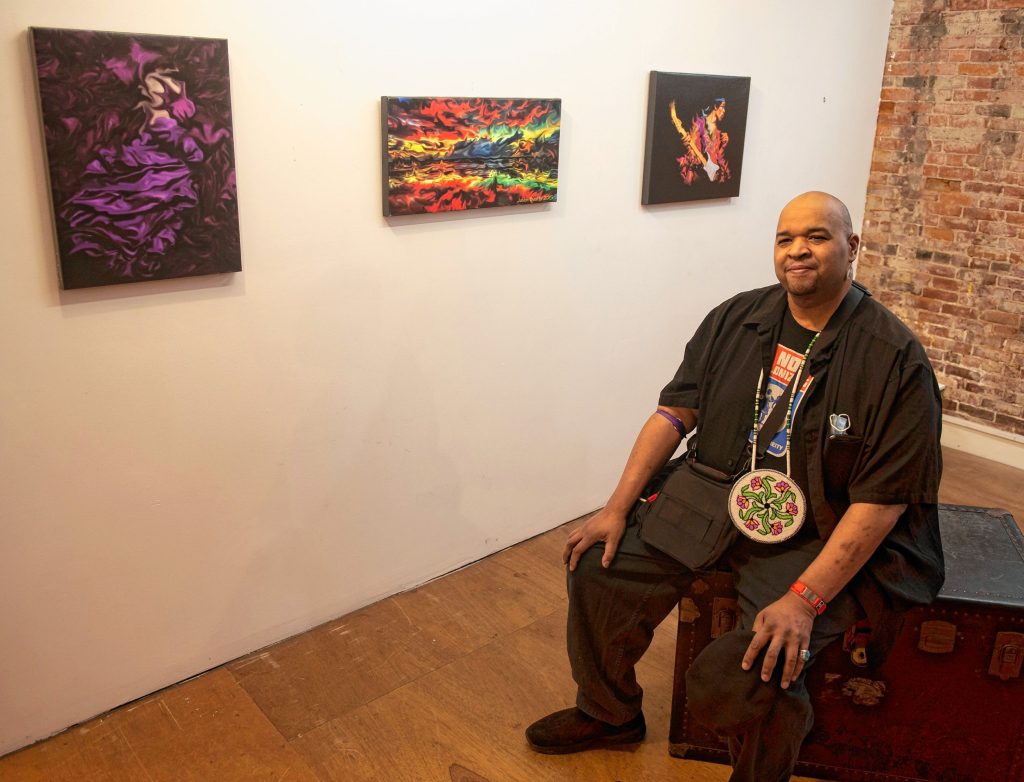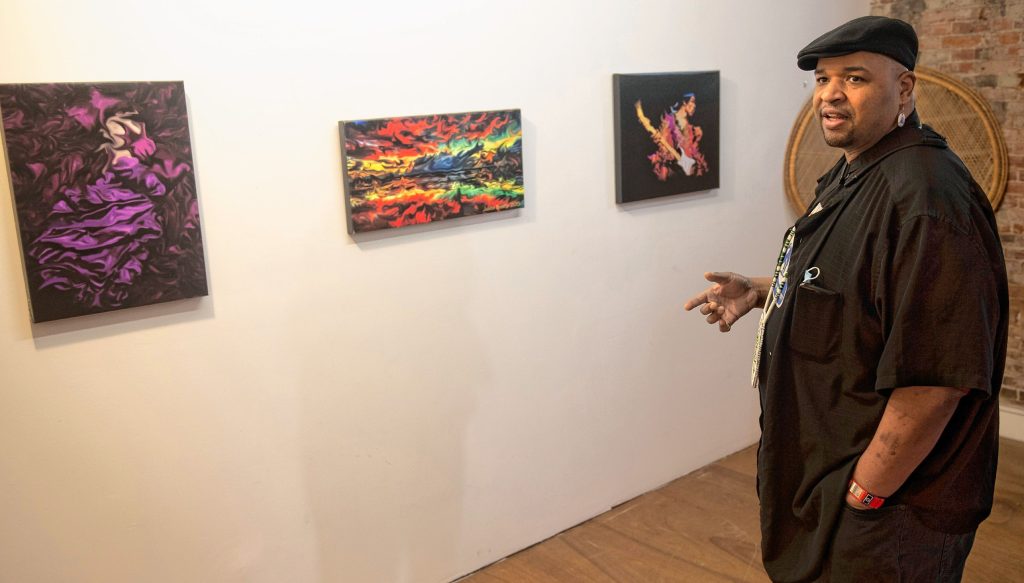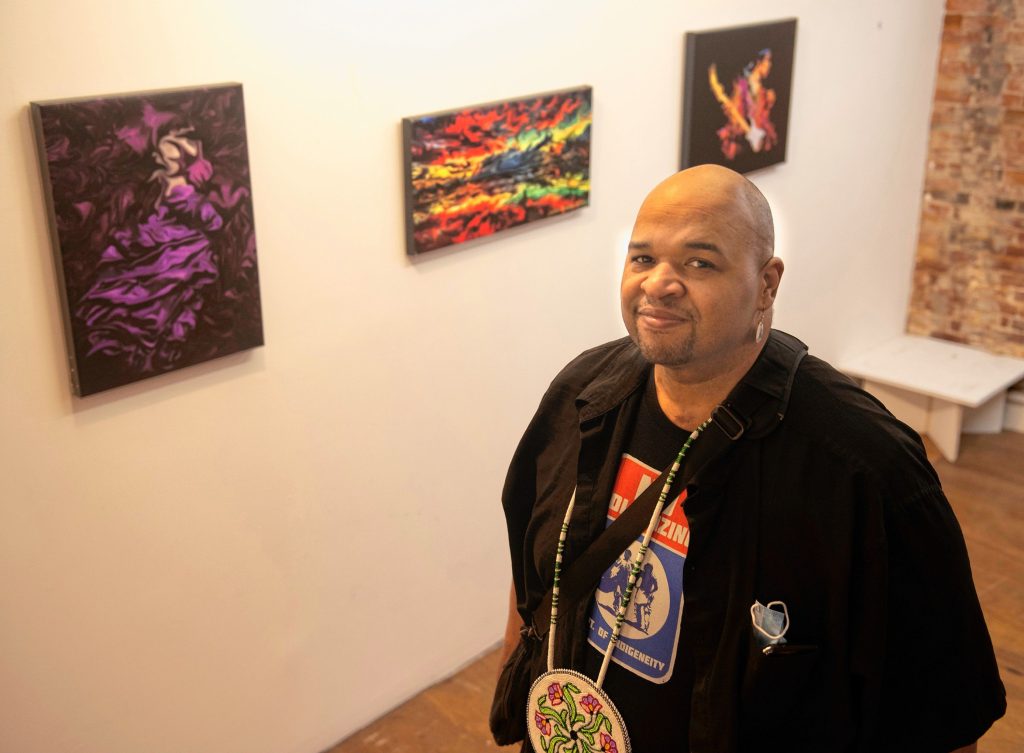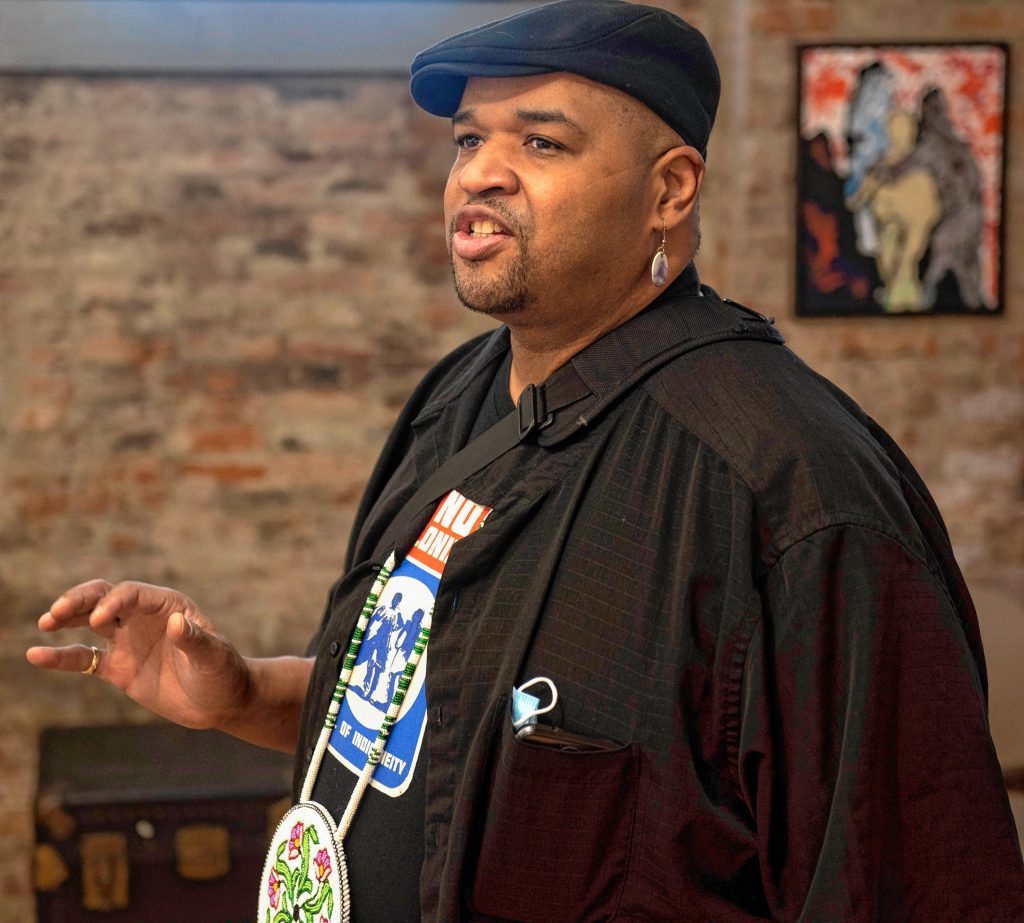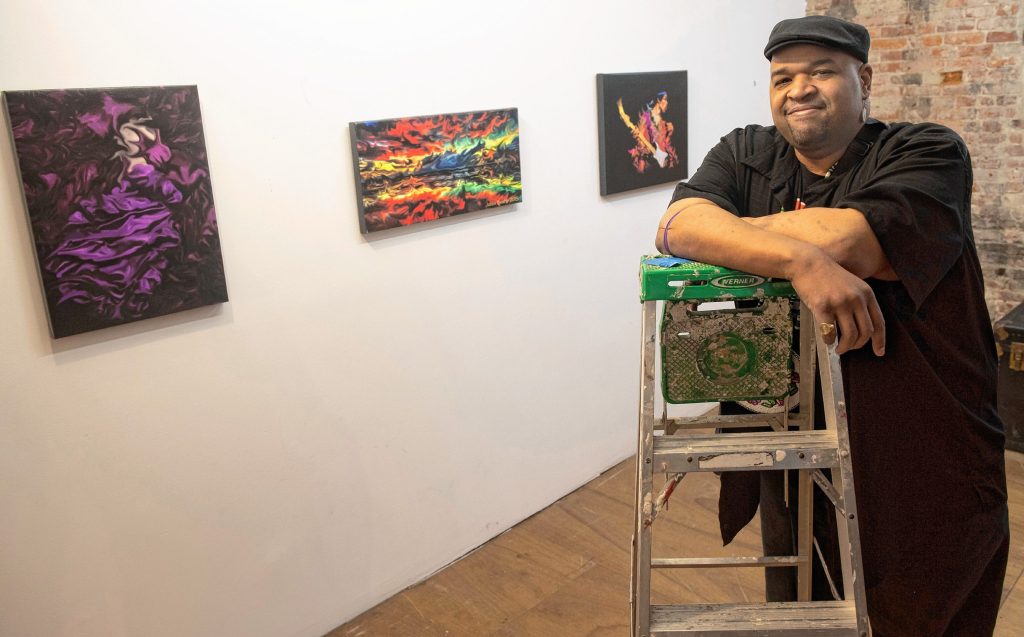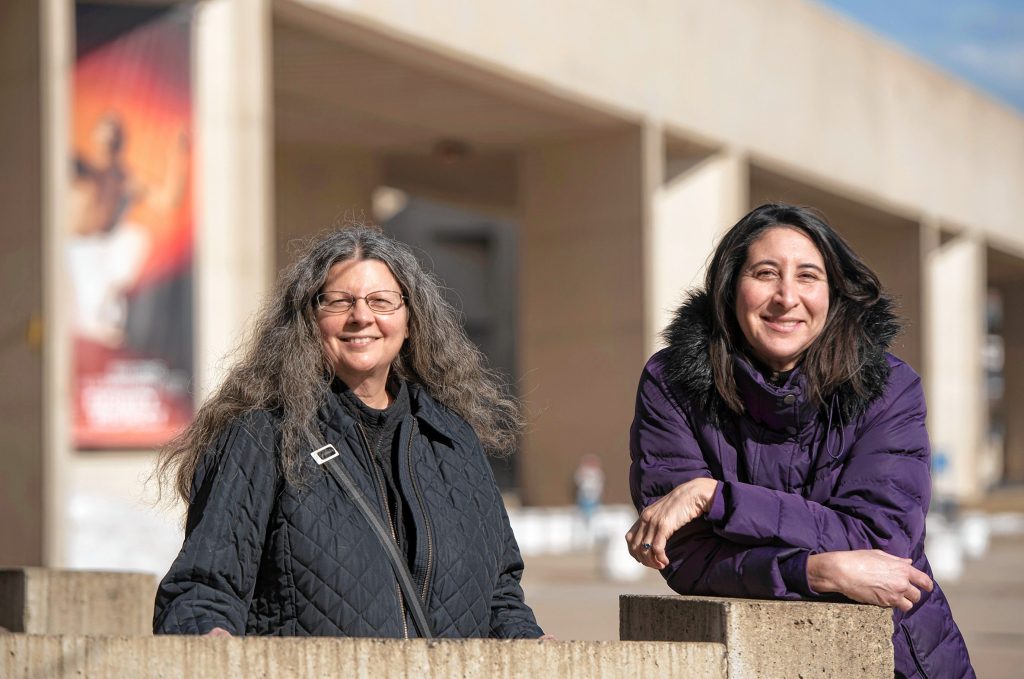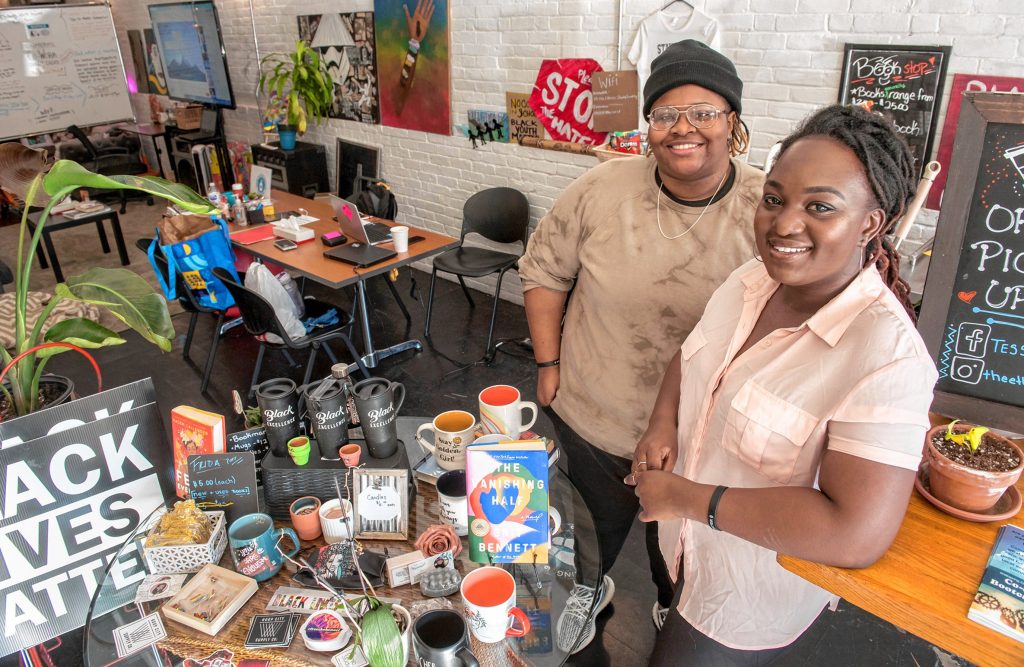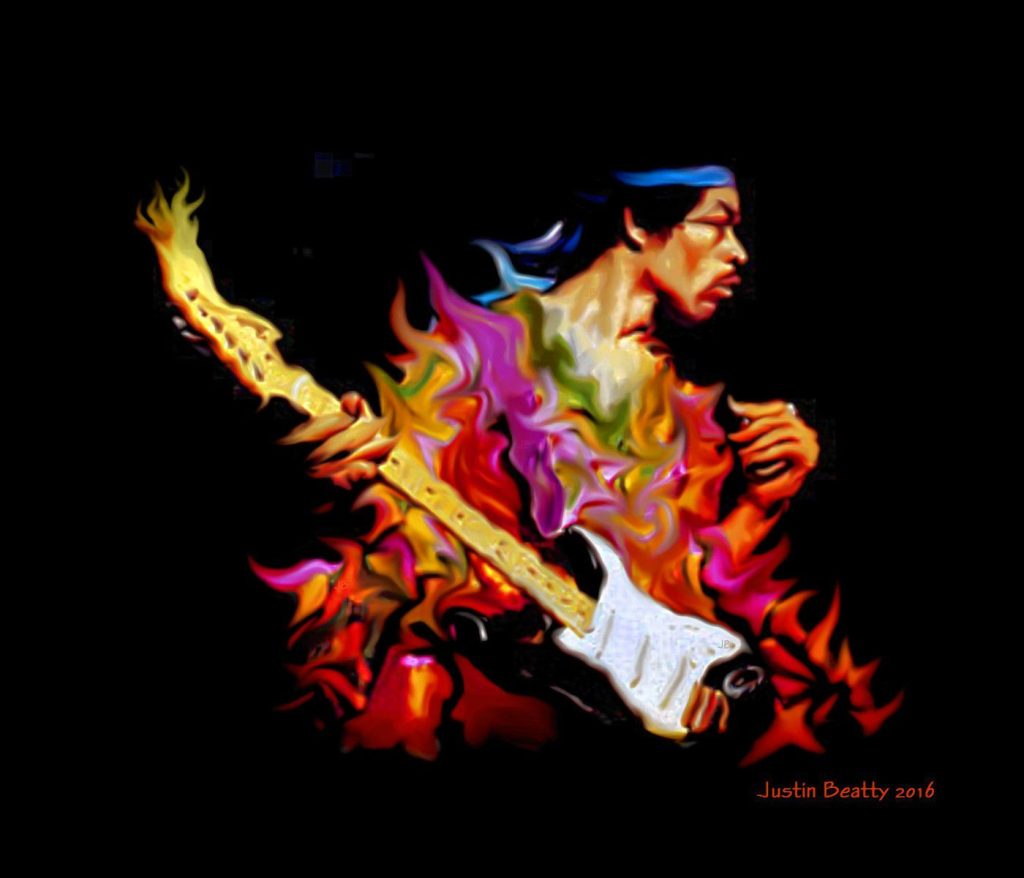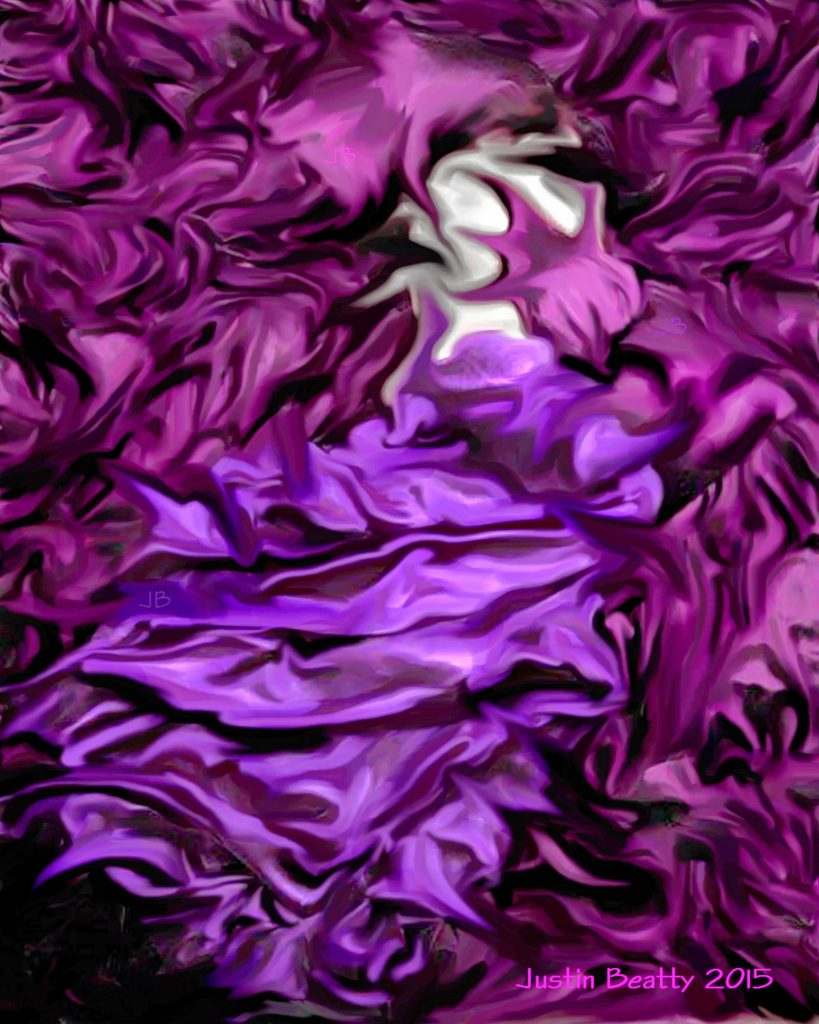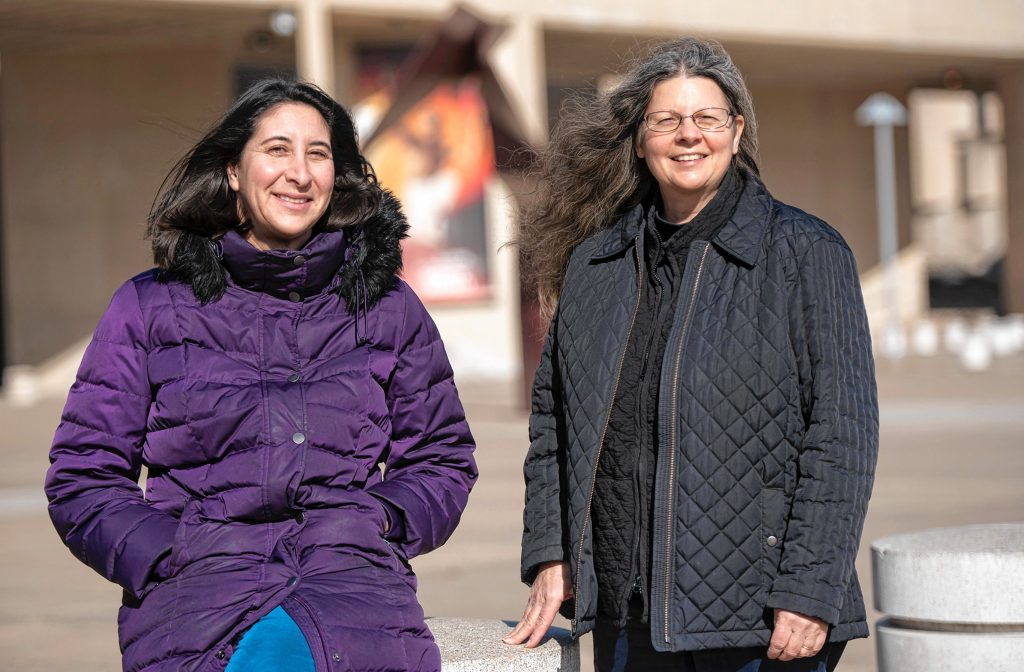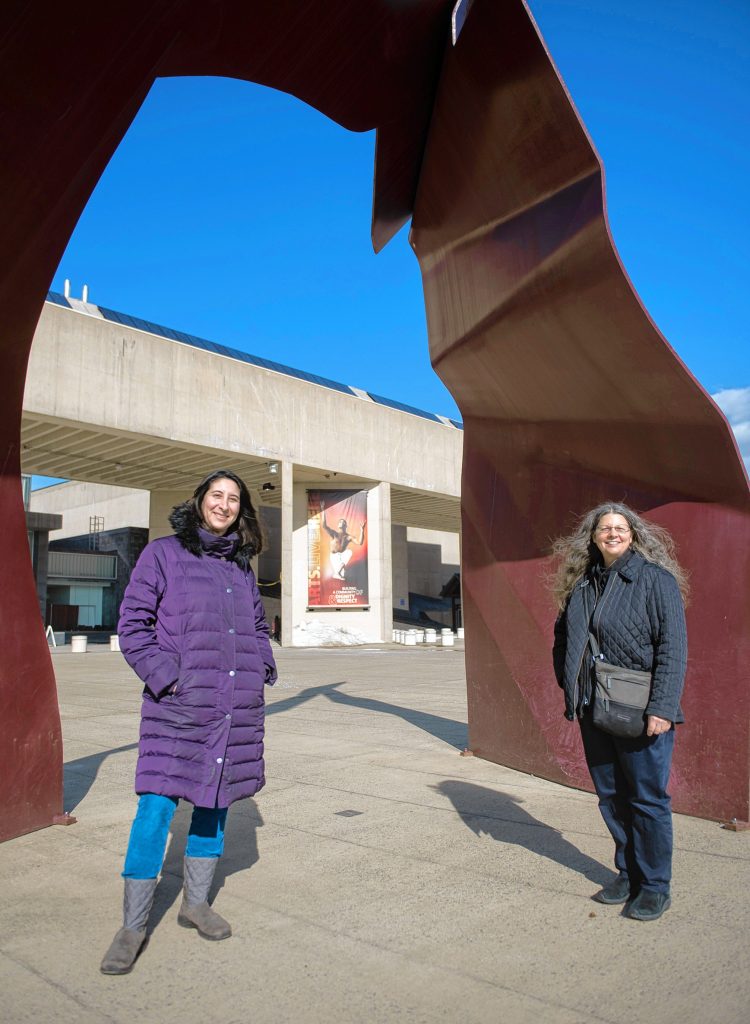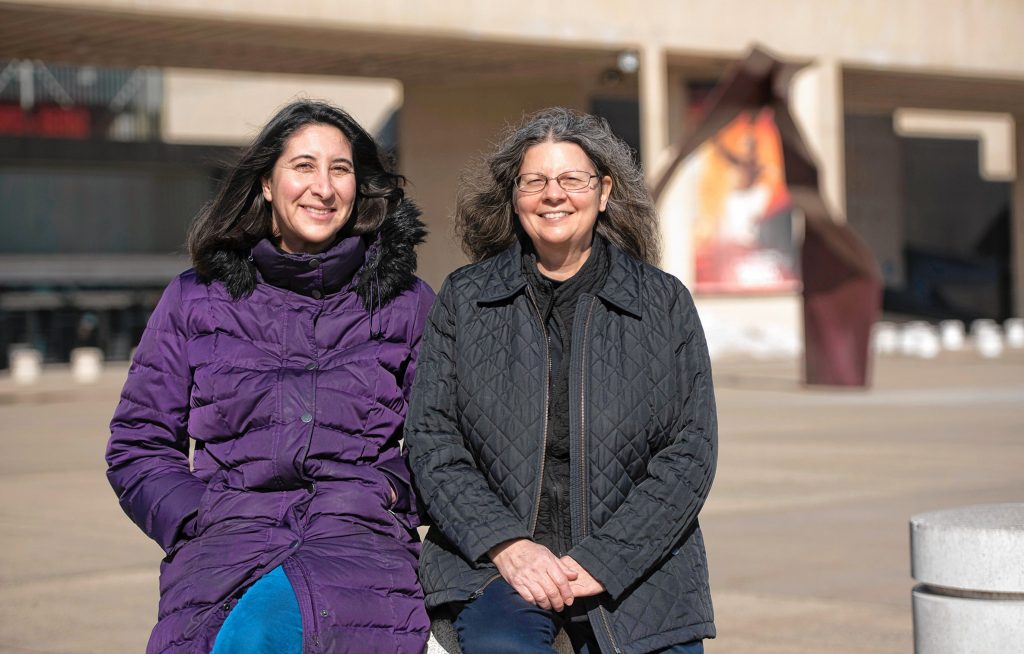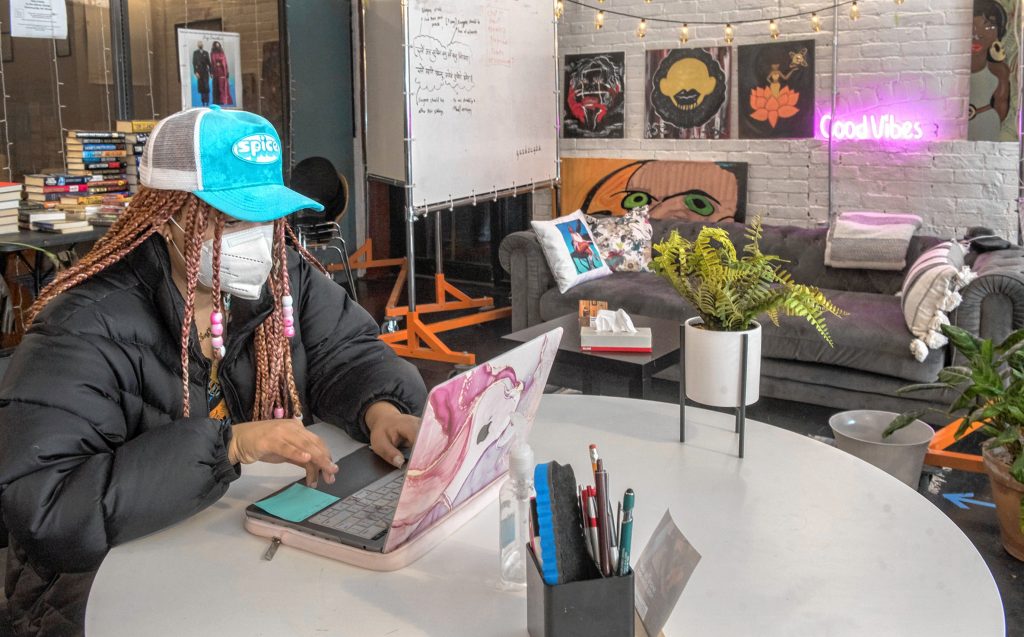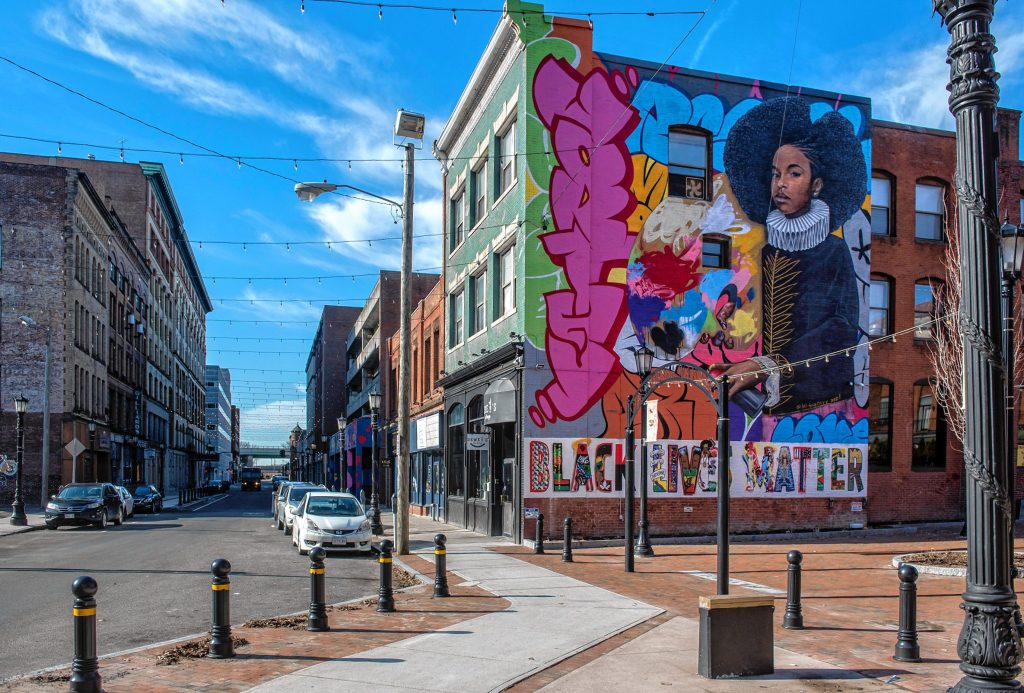The call went out for actors who were good at Shakespeare. It was quickly answered by a white-haired man in a black overcoat and low-brimmed hat: “Hath not a Jew eyes?” pleads Joe Vincent in a roiling voice. “If you prick us, shall we not bleed? If you tickle us, shall we not laugh? If you poison us, shall we not die? And if you wrong us, shall we not REVENGE?”
It is difficult to imagine a more riveting nor authentic Shylock. Even through the jaded lens of YouTube, Vincent fixes onto your humanity with dark, penetrating eyes. But this call for actors, and many like it, was not found in an ad in the back pages of this newspaper or tacked to a bulletin board at the Leverett Village Co-op.
Welcome to ArtsHub of Western Mass, a just-launched centralized free online portal connecting artists with those who seek art, a shot in the arm for a community emerging from the dark economic hole of COVID-19.
“The arts community has wanted something like this for years,” said Lisa Davol, director of marketing for the Franklin County Chamber of Commerce, who, along with fellow ArtsHub co-coordinator Dee Boyle-Clapp, director of Umass Arts Extension, has been pulling this together for five years. Thanks to a $186,000 grant from the Mass Office of Business Development, the project was officially launched last month at the ArtsHub Virtual Summit: “How to Recover and Thrive.”
The packed summit, with its vast panel of public relations gurus, casting directors and experts of all artistic stripe, sought to provide creatives with the tools to position their craft for the resurgence to come. It had artists imagining themselves as business people, crucial to the marketing of their work.
According to figures from the state, one in six jobs in western Massachusetts is directly related to the creative economy. “There’s a disproportionally high number of creative people here,” says Davol. “But you can’t succeed if you can’t be found.”
One-stop shopping
Touted as an ongoing, ever-evolving resource, the site will serve as one-stop shopping, with leads to jobs, grants, where to send headshots, resumes, video auditions — and people are already reaching out: Actor Jesse Richards posts about being “triple-vaxxed and going stir-crazy from Covid isolation” and would “love to put together a group of fully-vaxxed talented people to do some outdoor projects in Montague Center — Shakespeare, Che Khou, Beckett.”
“COVID has been the worst,” says Boyle-Clapp. “The crash of the economy in 2007, as bad as that was, it pales in comparison to COVID. And with theater, so many jobs connected to it — stagehands, ticket takers, rehearsal space for rent. We looked at what we could do to be liaisons with underserved communities.”
“Hit me up,” posts a music teacher new to the area, who’s “looking for community partners in Springfield … to create impactful youth-focused performance round DIY musicking.”
Another post serves as an invite to a workshop where actors will “observe the physicality of animals, who express themselves through everything else they have available.”
While there’s little indication that any animals have used the site, Hollywood, which has increasingly favored the Pioneer Valley for exteriors, will certainly tap in, Davol predicts. “The latest season of ‘Dexter’ was partially shot in Franklin County,” she reminds.
Caldwell’s Truck Stop & Diner of Iron Lake, New York, a key location in the “Dexter” series, is better known as the Whately Diner and Truck Refueling. Far-flung fans of the show, in fact, have been known to show up in Whately to see the place where everybody’s favorite serial killer pumped gas. “When (producers) need local talent, they can find it here. And tourists are always looking for something to do.”
“We’re always in our own silos in Berkshire County, Franklin, Hampden,” says Davol. “We want to learn from each other. This is the place to collaborate. I’ve already talked to artists who say, ‘I never thought about collaborating with him or her.’”
“It could be anything,” said Davol. “I’m looking for a musician for my niece’s bat mitzvah, for instance. Nobody knows where to look, you get emails, I know this person, that person. Unless a feature article appeared in the paper you’d never know a lot of these artists existed.”
Artists: We need this hub
“I love the idea,” said Hadley artist and pow wow singer Justin Beatty. “Tons of artists say they want it. There hasn’t been a functional space for people to engage in these sorts of things. Art school didn’t teach you the business side.”
“There are so many parts to the art scene. A lot more people will benefit from as it (the ArtsHub) develops. ‘Y’now what’d be cool — what if we added this?’ It’ll give artists a much fuller picture of what they can do.”
Beatty, who has Native and African American heritage, was a hip-hop-fueled graffiti artist in his youth, but bonded with the sounds and colors of pow wow long before that, as an infant. His childhood neighborhood just outside of Queens, Roosevelt, was 85% Black, 12% Latino, 3% white “with three Native American families,” he says. Yet his parents, who exposed him to a variety of cultures, found pow wows everywhere, “in Queens, Brooklyn, the YMCA in Manhattan, every weekend from March to November.”
To this day he can never get enough of it and speaks to its power, its energy transfer from drum to voice to individual. A “grass dancer” in his younger years, Beatty is in demand as an intertribal pow wow singer, finding his voice at age 6. “The songs you learn by rote, handed down,” he says. “You don’t do it for the accolades, you do it because your community needs it.”
As drum keeper, Beatty calls the passed-down instruments grandfathers. “They have a spirit,” he says.
Currently collaborating on a video project about the Indian Removal Act of 1830 and the resulting Trail of Tears, Beatty uses his art to confront the popular misconception that the Native American experience takes place predominantly on reservations: “Eighty percent of Native Americans live in cities, places that we were from before anything else was here.”
His website, J.Beatty Digital Visuals, features digital paintings of proudly-dressed Natives in urban settings. One woman in full regalia dances obliviously as head-down pedestrians pass her by. “Some say she’s in costume,” he laughs. “American jeans and T-shirts are our costumes. Our traditional clothes are not costumes.”
That said, he loves the iconic series “Reservation Dogs,” about teens living on a reservation and counts actor Dallas Goldtooth, who plays Spirit, among his friends. “The authenticity of the voices is what really drives it,” said Beatty.
You can see the graffiti-training in many of his works. “How do I make it pop but how do I give it that same flat color of the city? The graffiti was fun but wasn’t saying something.”
“Blue Trauma,” his first painting after his near fatal car crash in 2020, shows a mind at work, a soul hopeful, but not exactly at peace. The heart surgery coupled with the tracheotomy forced Beatty to relearn everything, from talking to even sitting up in bed.
“I thought I would never be able to make art again. So you drag the brush this way, you drag the brush that way,” he said, and it all came slowly back, with more freedom attached. “Sometimes with the digital pieces you’re just layering, fooling around with things to see if you can get to what’s in your head.”
“I find it very difficult not to enjoy art,” he says, and takes great pleasure from the avant garde murals that grace the ass-ends of old paper-mill buildings along the Holyoke canal.
The Ethnic Study cafe
Twenty minutes from Hadley in downtown Springfield is the Ethnic Study Cowork Café and Bookstore, a brick-and-mortar haven for marginalized people, a safe place to hang out, to paint, to learn, whose owners are also encouraged by the potential of the ArtsHub.
“Artists are starting to meet each other,” said Simbrit Paskins, co-owner along with her partner Stephany Marryshow.
Every spare inch of The Ethnic Study’s walls are covered with the work of local artists. “It’s a budding connection,” said Paskins of the ArtsHub launch. “The immediate connection is with our art show.”
The Abstract Black Art Exhibit is set to launch in Holyoke, Easthampton and at The Ethnic Study itself. “We’re opening our space to the community,” says Paskins. “It’s our co-working model — how can we alleviate that side hustle and turn it into a career?”
Behind their “413 Stay Woke, Stay Active” movement, Marryshow and Paskins mobilized 8,000 people via social media in the summer of 2020, and led 15 Black Lives Matter protest marches, including ones in Ludlow, Southampton and Easthampton. Marryhow said she felt safe at 90% of the marches. “But at three of our marches people were driving by yelling obscenities. But people were looking out for you,” she said. Sort of the vibe at The Ethnic Study itself, with its fully committed network of unpaid volunteers.
“It’s a radical idea for two queer Black women to open a place like this, rooted in activism,” says Marryshow. “But when the marching ends, how do you keep that 413 Stay Woke momentum?”
The cafe is one of those ways, as is partnering in projects like the ArtsHub. Paskins says, “A huge part of our mission is to help uplift BIPOC artists and their work so that, if desired, creating art can become a sustainable career and we believe that the ArtsHub, if focused on inclusion and equity in their work, will be a huge support to that goal.”
Adds Beatty, who serves as ArtsHub’s community liaison: “And to be able to have that access around the clock… so many parts of the arts scene — to be in touch with gallery owners, program directors, suppliers — it’s a great way to support each other as artists.”

